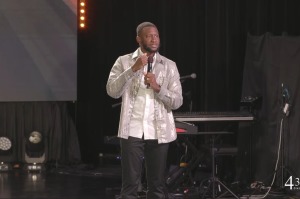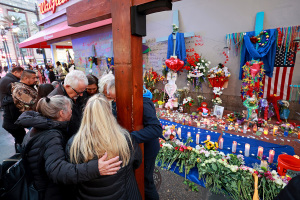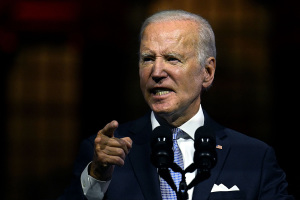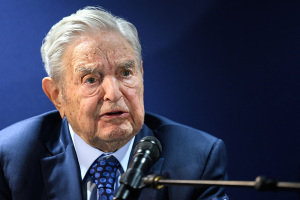Israel-Hamas ceasefire may be possible, Biden official says as terror group releases hostage video
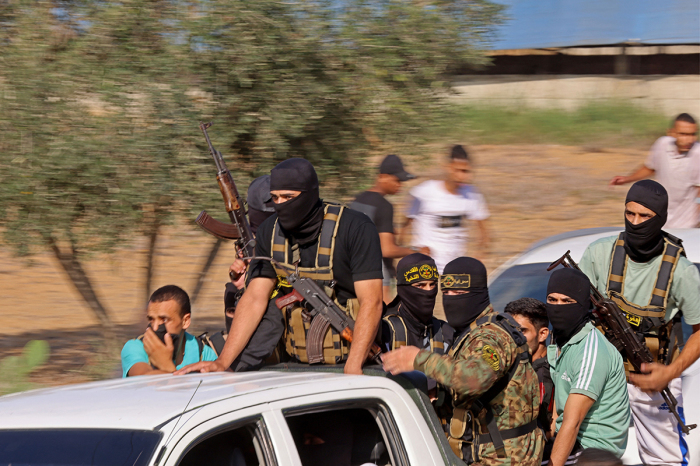
The possibility of a ceasefire between Israel and Hamas in Gaza grew closer as Jake Sullivan, the White House national security adviser, expressed optimism on Sunday following a recent ceasefire reached between Israel and Hezbollah in Lebanon. The optimism coincided with the release of a hostage video by the terrorist group.
Speaking on CNN’s “State of the Union,” Sullivan noted that an end to the 14-month conflict between Israel and Hamas was “more likely” now, although he avoided making definitive predictions, stating, “because we’ve come close before.”
The Biden administration's hopes have been buoyed by Israel’s recent diplomatic progress with Hezbollah, which is seen as an encouraging development in the context of Mideast tensions. Sullivan said U.S. negotiators, along with other key players in the region, continue to work toward achieving both a ceasefire and the release of hostages still held by Hamas, Voice of America reported.
Hamas, which instigated the ongoing conflict by staging attacks in Israel in October 2023 — in which nearly 1,200 people were tortured and killed, including some 40 Americans, and over 254 others were taken hostage, many also raped or tortured — has released a video of Edan Alexander, an Israeli American hostage captured during that assault.
In the footage, Alexander, visibly distressed, was ordered to criticize Israeli Prime Minister Benjamin Netanyahu, saying, “The prime minister is supposed to protect his soldiers and citizens, and you abandoned us.”
Sullivan, speaking on NBC’s “Meet the Press,” called the video a “cruel reminder of Hamas’ brutality,” saying it shows the challenges involved in negotiating for the freedom of those detained.
“We are engaged deeply with the key players in the region, and there is activity even today,” Sullivan said. “Our hope is that we can generate a ceasefire and hostage deal, but we’re not there yet,” Sullivan added.
Israel’s President Isaac Herzog offered a similarly hopeful yet cautious note, saying negotiations are “taking place behind the scenes” and hinted at the possibility of a breakthrough, though he stopped short of declaring any specific timeline.
The urgency for negotiations is fueled by the toll of the conflict. Israel estimates that about a third of the hostages are no longer alive.
In Gaza, the counteroffensive by Israeli forces has resulted in over 44,000 Palestinian deaths, with more than half of the casualties being women and children, according to the Gaza Health Ministry. The Ministry has not clarified how many of the deceased were combatants. Israel says its forces have killed over 17,000 militants during its operations.
The conflict between Israel and Hezbollah in Lebanon appears to have calmed somewhat following the recent ceasefire. Sullivan said the next few days are critical for ensuring the ceasefire holds. “Our goal is to get through these first few days, critical days of a ceasefire, when it’s most fragile, have it take full hold, and then ultimately build on it so that it becomes the permanent ceasefire it’s intended to be,” he said.
The U.S. is working alongside France and other allies to support the Lebanese Armed Forces in ensuring that the ceasefire remains effective.
Hamas has demanded a complete Israeli withdrawal from Gaza as a condition for peace, a demand Israel has repeatedly rejected. In turn, Israel has asked for the total eradication of Hamas’ influence in the region and the release of hostages.
Meanwhile, the Christmas spirit has dimmed once more in Bethlehem, as the Gaza conflict is keeping tourists away and has dampened any sense of celebration, according to Reuters.
“During these difficult times, especially with the situation in Gaza, it is hard to show any joy,” Issa Thaljieh, an Orthodox priest at the Nativity Church, was quoted as saying. He added that many Christian families were also contemplating leaving the city, discouraged by both the absence of tourists and the constant threat of violence.
Christian communities across the Middle East have been in decline for decades, and Bethlehem has not been spared. In 1947, about 85% of the city’s population was Christian. By 2017, the number had fallen dramatically, with only around 10% of the 215,514 residents identifying as Christian.
















